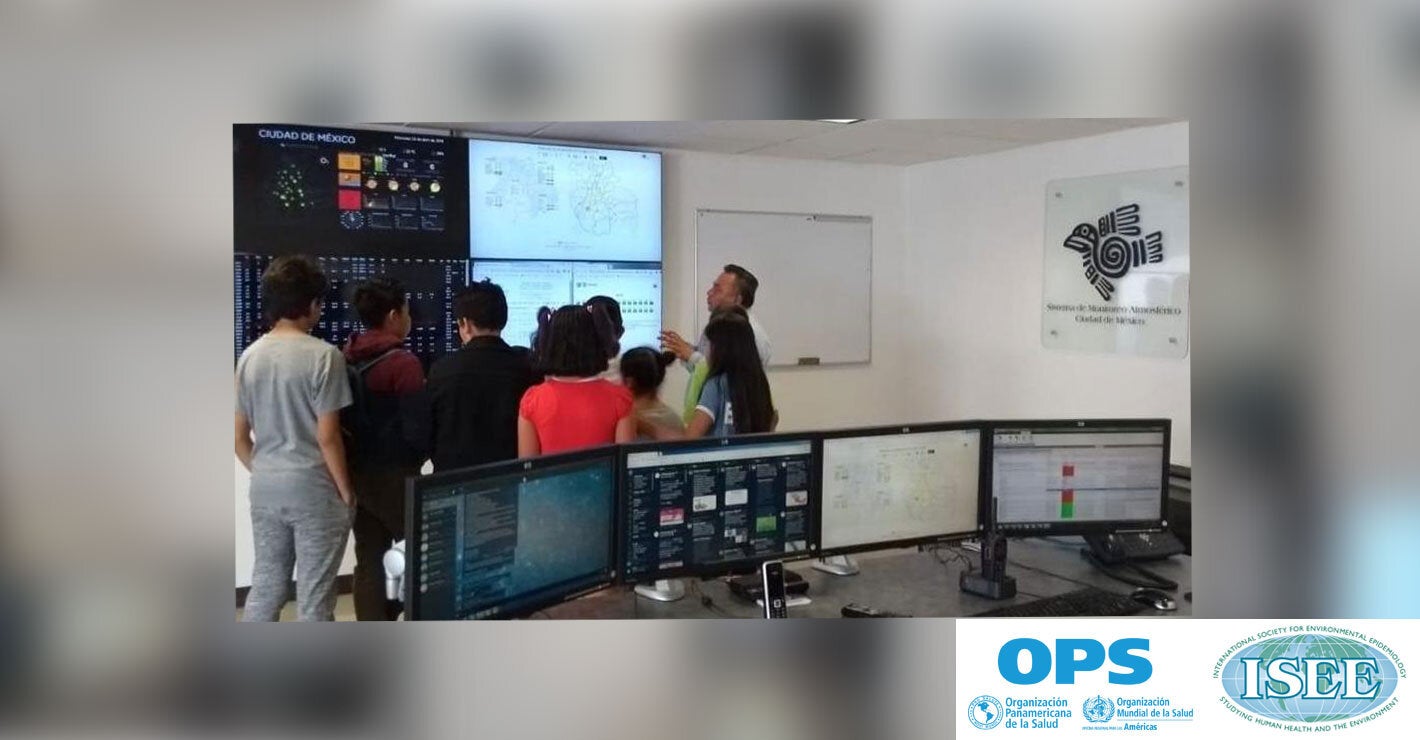
PAHO-ISEE LAC Webinar Series:
A Collaboration for Permanent Education in Environmental Epidemiology
Date: Thursday, October 15, 2020
Time: 12h – 13:30 (EDT) (Washington DC, GMT- 4)
To register and access the Webinar, go here .
Organizer: Latin American Chapter of the International Society for Environmental Epidemiology (ISEE-LAC) in collaboration with the Pan American Health Organization (PAHO / WHO)
Background
Latin America and the Caribbean is one of the regions with the highest urban growth in the world. This population concentration has generated an increase in exposure to air pollution. In the last 10 years, efforts have been made to reduce the risks associated with air pollution in some major cities in different countries. In this Webinar we will have the opportunity to discuss the role of epidemiological research in providing evidence for public policy decision making and the basis for environmental public health surveillance through the experiences of Chile, Colombia and Mexico. Also discuss achievements and challenges to implement a monitoring and surveillance system with a view to protecting the health of the population.
Objective:
Discuss how epidemiological research on air quality and human health monitoring experiences in Chile, Colombia, and Mexico have contributed to shaping public policies and decontamination plans.
Target audiences:
Students registered in the online course on environmental epidemiology of the virtual campus of public health ( https://mooc.campusvirtualsp.org/course/view.php?id=60 ); technicians, professionals, and managers of environmental health and public health in general, and the general population with an interest in the subject.
Below is the list of exhibitors:
1. Title of the presentation: Environmental and health surveillance of air quality in Chile
Presentation summary: This presentation will review the basic aspects of the air quality surveillance system in Chile, its limitations and strengths, and recommendations for the strengthening of a comprehensive public health surveillance network aimed at reducing risks to population health. .
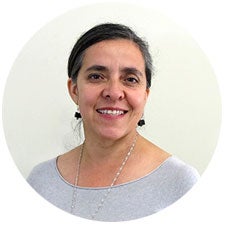
Speaker: Dra. Sandra Isabel Cortes Arancibia
Bio: Dr. Sandra Cortes is a veterinary doctor, obtained at the University of Chile (classified as the first
best university in Chile) has a Master in Biological Sciences (mention in Environmental Sciences) and a Doctorate in Public Health, he also has a certification in medical education. She is an Associate Professor of the Department of Public Health of the School of Medicine, at the Pontificia Universidad Católica de Chile (Awarded as the “2nd best university in the country).
In the last twenty years of his career, he has studied the effect of heavy metals and pesticides on the environment and their relationship with population health. She is President of the Chilean Society of Epidemiology and Director of the Children’s Environmental Health Committee of the Chilean Society of Pediatrics. Dra. Cortes is an Associate Researcher at two research centers in priority areas for Chile, the Advanced Center for Chronic Diseases (ACCDIS) and the Center for Sustainable Urban Development (CEDEUS).
2. Title of the presentation: Environmental public health surveillance approaches to air quality in Colombia
Presentation summary:
In this presentation, Dr. Hernández discusses the strategies, challenges, and opportunities for approaching public health and environmental surveillance of air quality in Colombia. Some aspects of its presentation include the incorporation of disease burden study methodologies by air quality and health to the routine public health surveillance processes of air quality and health; the design and development of critical monitoring strategies as follow-up to Social Determinants of Air Quality and Health through the Motive Forces methodology complemented with social mapping and problematization exercises and the adoption and implementation of new methodologies for estimating exposure to air pollution. air.
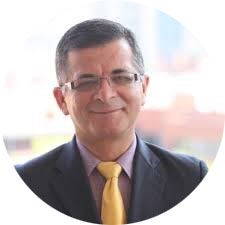
Speaker: Dr Luis Jorge Hernandez
Bio: MD Epidemiologist, Master and PhD in Public Health. Associate Professor at the Faculty of Medicine, with experience in the Environment and Health group of the Bogotá Health Secretariat and in PAHO where he has consulted in Colombia. His area of work, research and translation of knowledge is in the areas of the relationship between environment and Health, Models of Attention to Social and Environmental Determinants, Air Governance and Health Indicators. He is a member of: ISEE: International Society Enviromental Epidemiology.
3. Title of the presentation: The development of surveillance systems in air quality and health in Mexico
Presentation summary:
In this presentation, Dr. Riojas presents the development and status of the surveillance systems for air quality and health risks in Mexico. I will carry out a historical review of the subject and its relationship with the findings made in epidemiological studies carried out in the country and in the world. We will comment on the development of the air quality and health indices, the way they have been constructed and the use that is currently being given to them. We will mention how civil society has participated in the surveillance systems and in the use of the new index. We will comment on the results we have had in relation to surveillance systems in the context of the COVID epidemic.
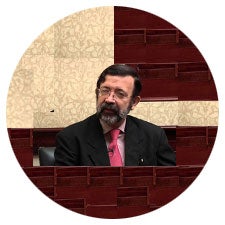
Speaker: Dr Horacio Riojas
Bio: Graduated as a Surgeon and Midwife from the National Autonomous University of Mexico in 1983. Dr. Horacio Riojas is a Master of Science in Environmental Health from the National Institute of Public Health and a Doctor of Epidemiology with honorable mention from the National Institute of Public Health of Mexico.
Dr. Riojas currently serves as Director of Environmental Health of the Population Health Research Center at the National Institute of Public Health – PAHO / WHO Collaborating Center for training in environmental epidemiology – from where he leads research on environmental degradation and health effects ; air pollution and health; effects of climate change on population health, neurological effects of environmental pollutants and risk assessment.
Moderator: Ing. Juan Jose Castillo. Regional Advisor on Air Quality. Pan American Health Organization, PAHO-WHO
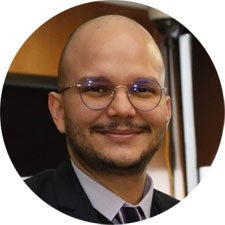
Bio: Juan José Castillo is Advisor on Air Quality and Health of the Pan American Health Organization. His work focuses on providing technical cooperation to the countries of the Americas and the Caribbean to strengthen capacities to reduce the burden of disease due to air pollution in the region. He has 12 years of experience in air quality and health, including leadership positions in international non-profit organizations; teacher and researcher in the academy; public official in the transport, environment and health sector; and experience in the private sector.
He is an Environmental Engineer from the National University of Colombia with a Master’s Degree in Environmental Management from the Universidad de los Andes.
| Time | Exercise | Responsable |
| 12:00 – 12:05 | Welcome Environmental public health surveillance |
Agnes Soares da Silva |
| 12:05 – 12:10 | Contextualization of the topic Introduction of the panelists |
Juan Jose Castillo, Moderator |
| 12: 10– 12:25 | Environmental and Health Surveillance of Air Quality in Chile | Sandra Cortes |
| 12:25 – 12:40 | Environmental public health surveillance approaches to air quality in Colombia | Luis Jorge |
| 12:40 – 12:55 | Epidemiological Research and Air Quality Policies in Mexico | Horacio Riojas |
| 12:55 – 13:25 | Discussion | Moderator |
| 13:25 – 13:30 | Closure of the session | Ana Maria Mora (ISEE) |